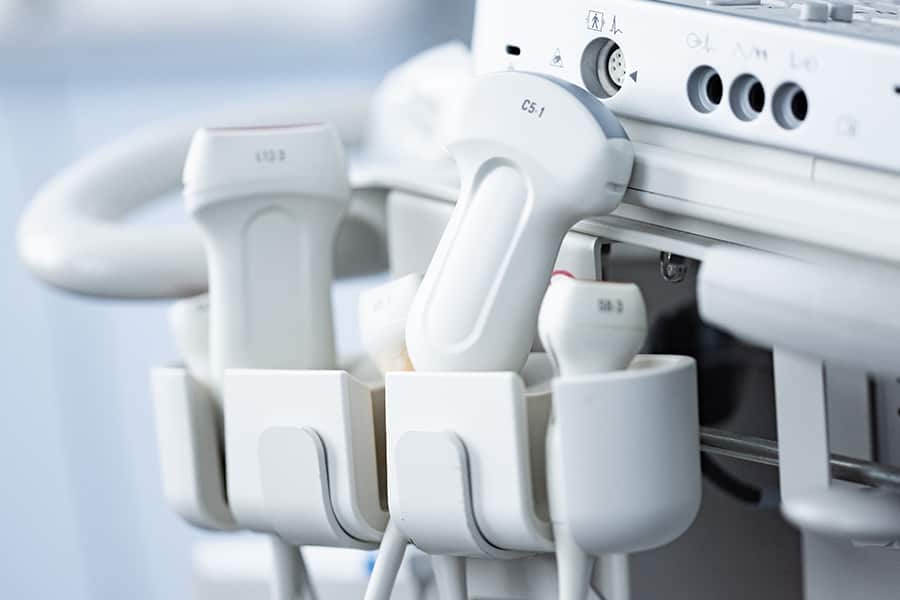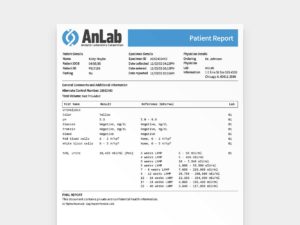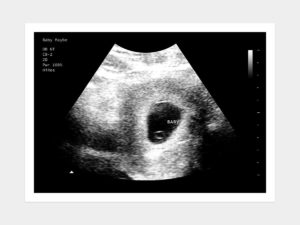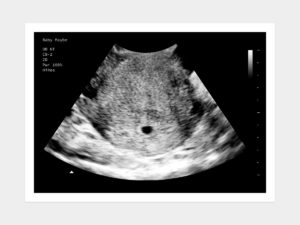
Pregnancy is a transformative time, filled with anticipation and excitement. To ensure the health and well-being of both the expectant mother and the developing baby, healthcare providers use a variety of prenatal screenings and tests. In this article we will explore these common pregnancy tests, including ultrasounds and blood tests, to provide an understanding of their purposes and importance during pregnancy.
Prenatal screenings and tests are essential components of prenatal care. They serve several crucial purposes:
Let us delve into some common prenatal screenings and tests:
Blood Type and Rh Factor: One of the first tests performed during pregnancy determines the pregnant woman's blood type and whether they have the Rh factor. Rh incompatibility can affect subsequent pregnancies, so identifying it early is crucial.
Complete Blood Count (CBC): A CBC measures various components of the blood, including red blood cells, white blood cells, and platelets. This test helps diagnose anemia and infection.
Blood Sugar Tests: These tests screen for gestational diabetes, a condition that can develop during pregnancy. Managing blood sugar levels is essential for both maternal and fetal health.
STI Testing: Sexually transmitted infection (STI) testing is typically done early in pregnancy to detect and treat any infections that could affect the baby.

Dating Ultrasound: Performed in the first trimester, this ultrasound helps estimate the baby's due date and confirms the pregnancy's location in the uterus.
Nuchal Translucency Screening: Conducted between 11 and 14 weeks, this test assesses the risk of Down syndrome and other chromosomal abnormalities by measuring the thickness of the baby's neck.
Anatomy Scan (20-Week Ultrasound): Around the 20th week of pregnancy, an anatomy scan provides a detailed look at the baby's development, including the organs, bones, and the placenta's position.
Growth Ultrasounds: Throughout the pregnancy, growth ultrasounds track the baby's size to ensure they are growing appropriately.
Doppler Ultrasound: This test measures blood flow in the baby's umbilical cord, helping to assess the baby's well-being.
3D and 4D Ultrasounds: While not typically used for medical purposes, these ultrasounds provide 3D and real-time images, allowing parents to see their baby's features and movements in more detail.
Non-Invasive Prenatal Testing (NIPT): NIPT screens for common chromosomal abnormalities, such as Down syndrome, by analyzing the baby's DNA in the mother's blood.
Quad Screen: Typically done between 15 and 20 weeks, the quad screen measures the levels of four substances in the mother's blood to assess the risk of neural tube defects and certain genetic conditions.
Amniocentesis and Chorionic Villus Sampling (CVS): These invasive tests are performed when there is a higher risk of genetic disorders. They involve taking a sample of amniotic fluid or placental tissue to assess the baby's chromosomes.

Around the 36th week of pregnancy, a GBS test is conducted to check for the presence of group B streptococcus bacteria. GBS can be harmful to the baby during childbirth, so identifying it allows for appropriate antibiotic treatment.
To diagnose gestational diabetes, pregnant women may undergo a glucose tolerance test. It involves drinking a sugary solution and monitoring blood sugar levels at specific time intervals.
In the third trimester, healthcare providers may recommend monitoring the baby's movements (kick counts) or conducting non-stress tests to assess the baby's well-being.
Prenatal screenings and tests are valuable tools that provide critical insights into the health and development of both the expectant mother and the baby. They play a vital role in ensuring a safe and healthy pregnancy. Understanding the purpose and timing of these tests, as well as discussing any concerns with your healthcare provider, can help expectant parents make informed decisions and ensure the best possible outcomes for their pregnancy.
This information is presented as a general guide to present information about prenatal screenings and examinations. It is for informational purposes only. The information provided is not intended to be the only information available about prenatal screenings and examinations. The material provided is not expected to be a substitute for advice or information from your physician or health care provider.
If you have any questions, concerns, fears, apprehensions, unease, or worry about prenatal screenings and examinations contact your health care provider immediately.








ALL WARRANTIES OF ANY KIND WHATSOEVER EXPRESS, IMPLIED, AND STATUTORY, ARE HEREBY DISCLAIMED. ALL IMPLIED WARRANTIES OF MERCHANTABILITY AND FITNESS FOR A PARTICULAR PURPOSE ARE HEREBY DISCLAIMED. THE PRODUCTS SOLD, INCLUDING SONOGRAMS, ULTRASOUNDS, FAKE PREGNANCY DOCUMENTS, AND FAKE PREGNANCY TESTS ARE SOLD ‘AS IS’ BASIS.
THE SITE CANNOT AND DOES NOT CONTAIN [MEDICAL/ LEGAL/ FITNESS/ HEALTH/ OTHER] ADVICE. THE INFORMATION IS PROVIDED FOR PRANKS PURPOSES ONLY AND IS NOT A SUBSTITUTE FOR PROFESSIONAL ADVICE.
ACCORDINGLY, BEFORE TAKING ANY ACTIONS BASED UPON SUCH INFORMATION, WE ENCOURAGE YOU TO CONSULT WITH THE APPROPRIATE PROFESSIONALS. WE DO NOT PROVIDE ANY KIND OF MEDICAL/ LEGAL/ FITNESS/ HEALTH ADVICE. THE USE OR RELIANCE OF ANY INFORMATION CONTAINED ON THIS SITE, OR OUR MOBILE APPLICATION, IS SOLELY AT YOUR OWN RISK.
THIS WEBSITE DOES NOT PROVIDE MEDICAL ADVICE. THE INFORMATION, INCLUDING BUT NOT LIMITED TO, TEXT, GRAPHICS, IMAGES AND OTHER MATERIAL CONTAINED ON THIS WEBSITE ARE FOR PRANK PURPOSES ONLY. NO MATERIAL ON THIS SITE IS INTENDED TO BE A SUBSTITUTE FOR PROFESSIONAL MEDICAL ADVICE, DIAGNOSIS OR TREATMENT. ALWAYS SEEK THE ADVICE OF YOUR PHYSICIAN OR OTHER QUALIFIED HEALTH CARE PROVIDER WITH ANY QUESTIONS YOU MAY HAVE REGARDING A MEDICAL CONDITION OR TREATMENT AND BEFORE UNDERTAKING NEW HEALTH CARE REGIMEN, AND NEVER DISREGARD PROFESSIONAL MEDICAL ADVICE OR DELAY IN SEEKING IT BECAUSE OF SOMETHING YOU HAVE READ ON THIS WEBSITE.
THE PARTIES AGREE THAT ANY PRODUCT PURCHASED ON THE BABY MAYBE WEBSITE SHALL NOT BE USED FOR ANY PROPOSE OTHER THAN AS A PRANK. WITHOUT EXCEPTION NO BABY MAYBE PRODUCT SHALL BE PROVIDED/SUBMITTED TO ANY GOVERNMENTAL OR OTHER AGENCY, MEDICAL DOCTOR, ARBITER OF A DISPUTE, AS PROOF OF PREGNANCY, PAST OR CURRENT, OR TO CLAIM ANY BENEFIT FOR WHICH A PREGNANT WOMAN MAY BE ELIGIBLE, OR ENTITLED TO RECEIVE, BASED ON HER BEING PREGNANT. NO HIPAA PROTECTED PATIENT HEALTH INFORMATION CONNECTED TO ANY BABY MAYBE PRODUCT, IS INTENDED, OR CONVEYED, WITH RESPECT TO THIS SALE.
THE PARTIES AGREE THAT BABYMAYBE IS NOT RESPONSIBLE FOR ANY LIABILITY WHATSOEVER FOR DELAYS IN SHIPPING THE PRODUCT. THE PARTIES FURTHER AGREE THAT THE SOLE REMEDY FOR ANY SHIPPING DELAYS IS THE REFUND OF THE PURCHASER’S PAYMENT FOR THE PRODUCT.
THE PARTIES AGREE THAT THE FORUM FOR ANY LEGAL ACTION ASSOCIATED WITH THE SALE AND PURCHASE OF THE PRODUCT IS THE STATE OF ILLINOIS.